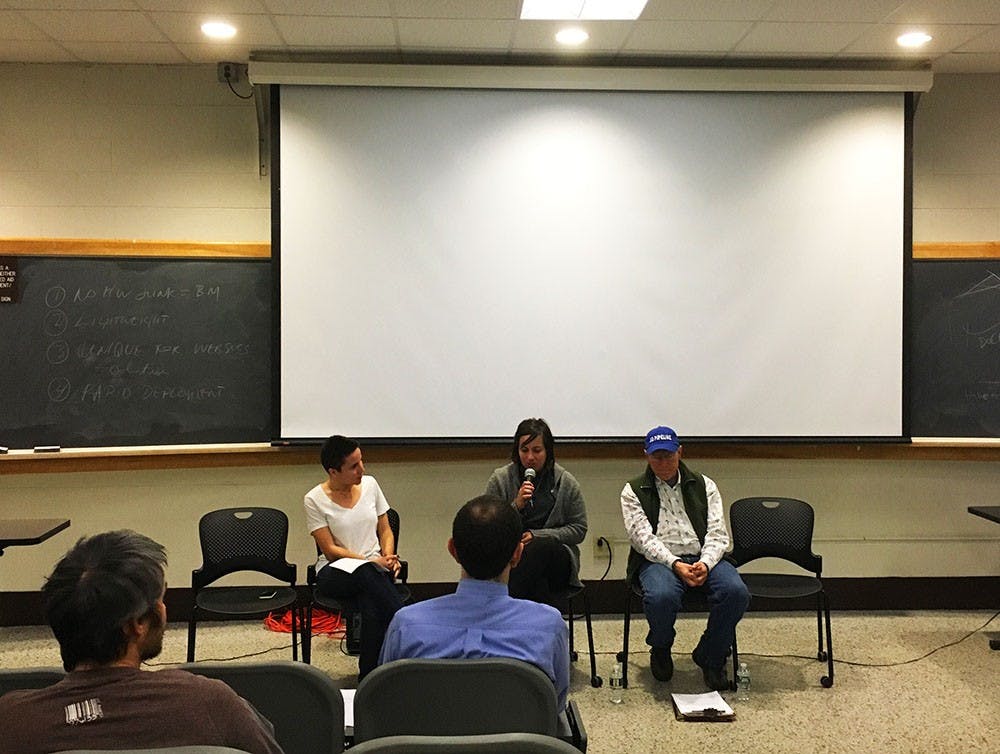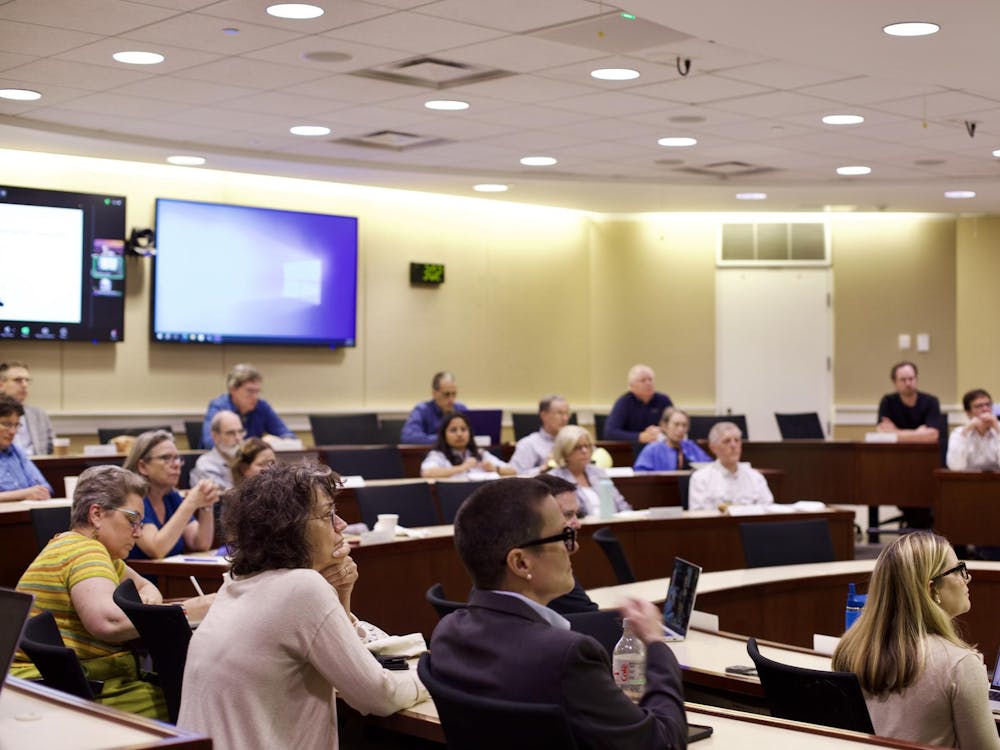A noDAPL teach-in panel organized by two University students Thursday provided information on and addressed opposition to the Dakota Access Pipeline.
The crude oil pipeline would run from North Dakota to Illinois, including a segment within a half-mile of Standing Rock Sioux tribe reservation land. Part of the pipeline will also tunnel underneath the Missouri River.
Ongoing protests at the pipeline construction sites in North Dakota began in the spring. Opponents of the pipeline argue it will contribute to environmental degradation and damage sacred cultural land.
Supporters of the pipeline say the crude oil delivered to major U.S. markets will support domestic demand.
Energy Transfer Partners, the parent company to Dakota Access, LLC., has said it “will take take extreme caution when crossing sensitive environmental, wetland or resource areas,” according to the company’s website.
Third-year College students Georgianna Reid and Sasha Fontaine organized the panel.
“I’m very touched by this issue because I started to get involved with Wild Virginia, because I cared about environmental things but didn’t know where to get involved. At a job fair, Wild Virginia was there and I just connected and got into the issue,” Reid said.
The panel was organized independent of any specific organizations.
“I wanted to try to bring it to the U.Va. community, and this is what came to mind,” Reid said.
The panel consisted of Reverend Tracy Howe Wispelwey of the Westminster Presbyterian Church, located on Rugby Rd., and President of Wild Virginia Ernie Reed. Wild Virginia is a non-profit organization dedicated to preserving Virginia’s national forests.
The panel discussed the spiritual and cultural value of the land the pipeline threatens.
“How we understand our connection to one another, our first, best most tangible example of that is our shared environment, our resources, the air we breathe, the water that we drink,” Reed said.
Reed has opposed the construction of the Atlantic Coast Pipeline in Virginia.
“The urgency of this is that this is happening now,” Reed said. “It’s immediate. When we put our feet on the earth and we’re walking, we are standing on the same earth that is being desecrated in Standing Rock.”
Wispelwey shared her experience traveling to Standing Rock as a religious leader by invitation of the tribal elders.
“The elders invited … clergy religious leaders to pray with them, but also in hopes that our presence would alleviate some of the persecution because of the media blackout because of the violence,” Wispelwey said.
Over 500 individuals responded to the elders’ invitation, Wispelwey said.
Wispelwey described her participation in the protest, including repenting the “discovery doctrine,” a law that allowed only individuals of Christian faith land ownership. This law allowed colonizers to lay claim to Native American-occupied land during the Age of Discovery, she said.
“The doctrine of our discovery was cited as recently as 2005 by the Supreme Court,” Wispelwey said. “We [as Christians] repented for our complicity in that. Members who have done that came before tribal elders of five different indigenous nations and officially apologized and repented.”
Reed emphasized the necessity of a connection to the land.
“If you go to the place that is being threatened … you develop a relationship with it, by the very fact that you’re there,” Reed said. “It’s very difficult to defend anything effectively on paper because you don’t have the heart connection to the place. The relationship to the place is the essence of all of this.”
He urged audience members to increase their awareness of the land and work to protect it.
“So what can you do? If there’s a place that you love, deepen your relationship with it. And if there’s places that are threatened go to them,” Reed said. “The only way those places will ever be protected is that people have developed relationships with them and protected them, stood and defended them.”
About 17 people attended the event.
The pipeline is also being protested by Native American student organizations and the Virginia Student Environmental Coalition.







